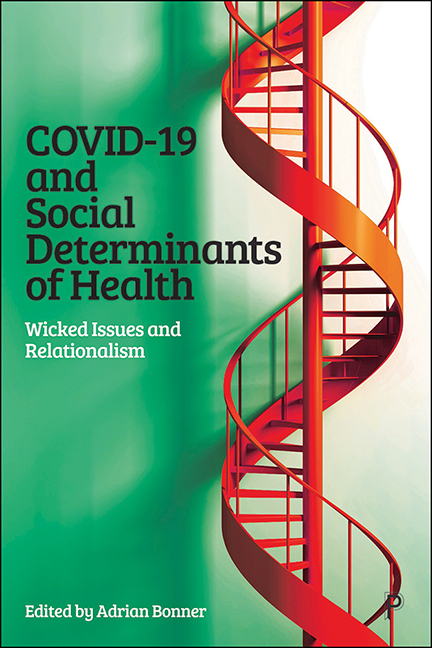Book contents
- Frontmatter
- Miscellaneous Frontmatter
- Contents
- List of figures and tables
- Notes on contributors
- Foreword
- Introduction
- Part I Wicked issues and relationalism
- Part II Regionalism and geopolitical environments
- Part III Public sector, COVID-19 and culture change
- Part IV The third sector
- Part V The case for relationalism
- Part VI Engagement and proposed changes
- Conclusion
- Appendix The Centre for Partnering
- Index
17.4 - Case study: Central England Co-operative society
Published online by Cambridge University Press: 18 January 2024
- Frontmatter
- Miscellaneous Frontmatter
- Contents
- List of figures and tables
- Notes on contributors
- Foreword
- Introduction
- Part I Wicked issues and relationalism
- Part II Regionalism and geopolitical environments
- Part III Public sector, COVID-19 and culture change
- Part IV The third sector
- Part V The case for relationalism
- Part VI Engagement and proposed changes
- Conclusion
- Appendix The Centre for Partnering
- Index
Summary
Introduction
Central England Co-operative is one of the largest independent co-operative retailers in the UK, with gross sales more than £1 billion, over 400 trading outlets, a family of around 8,600 colleagues and more than 330,000 regular trading members.
We trade across 16 counties, from Yorkshire through the Midlands to the East Coast – through more than 250 food stores, 100-plus funeral homes, filling stations, post offices, florists, masonry outlets, a crematorium and a coffin factory.
The business is owned and democratically controlled by its members who can stand for election to the board and who also share in the Society’s profits through dividends, community investment and member benefits.
Although independent from other co-operative societies we are part of a wider movement and share the international values of principles of co-operatives. As a movement we channel the power of relationalism and as a business use that power to bring our purpose to life – to create a sustainable society for all. We are committed to a society that is financially, humanly, and environmentally sustainable and inclusive.
Social value through cooperation
On 21 December 1844, 28 working people, the Rochdale Pioneers, opened a co-operative shop. They sold pure food at fair prices using honest weights and measures. They encouraged local people to become members, to take part in controlling the business and to share in the profits. There are now 3 million co-ops around the world with 1.2 billion members. In the UK alone, over 7,000 co-ops contribute £39.7 billion to the economy.
A co-op is a business that is owned and controlled by its members. Members can be customers, employees, residents or suppliers. You can find co-operatives in pretty much every industry, from healthcare to housing, renewable energy to retail, sports to social care. And they are every shape and size from multibillion-pound businesses to small community enterprises.
A co-operative might look like any other business, but they are guided by a core set of values and principles that sets them apart:
• A co-op is owned and controlled by its members and exist for the benefit of the members.
• Co-ops are democratic – every member has a vote and has an equal say in how it is run.
- Type
- Chapter
- Information
- COVID-19 and Social Determinants of HealthWicked Issues and Relationalism, pp. 326 - 332Publisher: Bristol University PressPrint publication year: 2023

